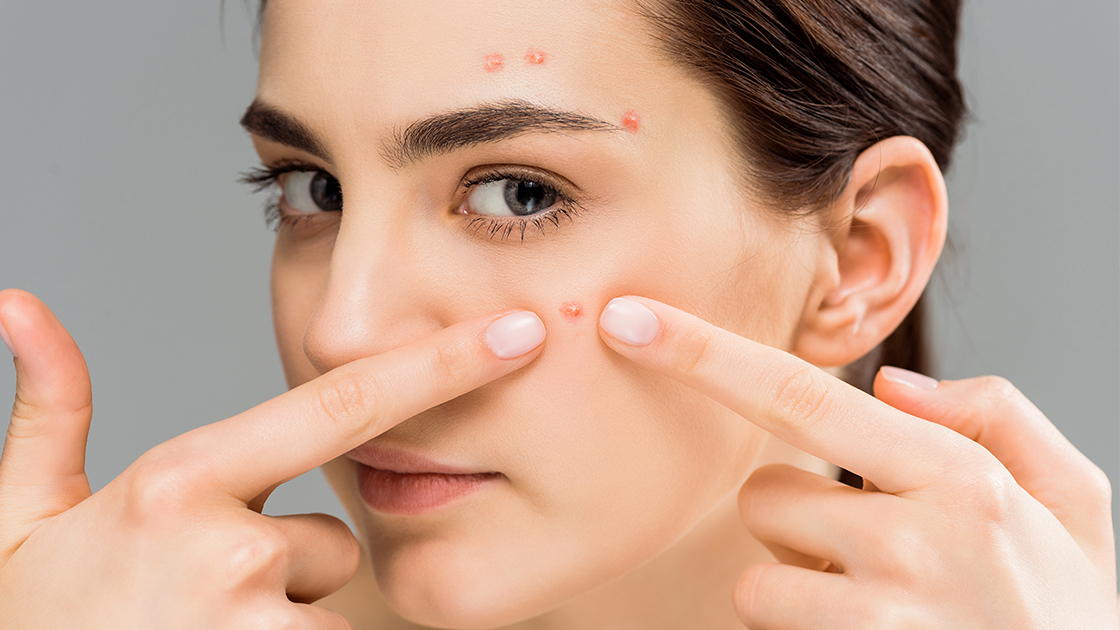Page Contents
Rosacea, a common chronic skin condition, can be a source of physical discomfort and emotional distress for those affected. The redness, visible blood vessels, and occasional bumps and pimples that accompany rosacea can significantly impact one’s self-esteem. While there’s no cure for rosacea, numerous treatment options are available to manage the symptoms. One such approach is laser therapy. In this passage, we will explore laser therapy’s role in addressing rosacea, evaluate its effectiveness, and consider potential risks associated with laser therapy for rosacea.
Laser Therapy for Rosacea
Laser therapy has gained recognition as a treatment option for rosacea, primarily due to its precision and ability to target specific blood vessels and redness associated with the condition. The therapy involves the use of intense beams of light, which can be precisely adjusted to the specific wavelengths required to treat rosacea.
The process is straightforward:
- Assessment: A dermatologist or healthcare provider first assesses the patient’s specific rosacea symptoms, skin type, and treatment needs.
- Targeted Treatment: The laser is then adjusted to the appropriate wavelength to target the visible blood vessels or redness on the skin.
- Precision Application: The laser is applied directly to the affected areas, where it delivers energy to the targeted blood vessels without affecting the surrounding skin.
- Healing Process: After treatment, the body’s natural healing processes begin to absorb and remove the damaged blood vessels, leading to a reduction in redness.
- Multiple Sessions: Depending on the severity of the rosacea, achieving optimal results may require multiple laser sessions.
How Effective is Laser Therapy for Rosacea?
The effectiveness of laser therapy for rosacea can vary from person to person and is often influenced by factors such as the type and severity of rosacea, skin type, and individual response to the treatment. However, many individuals experience significant improvements in their rosacea symptoms with this therapy.
Benefits of Laser Therapy for Rosacea:
- Reduction in Redness: Laser therapy effectively targets and reduces redness associated with rosacea, restoring a more even skin tone.
- Blood Vessel Reduction: The therapy can diminish visible blood vessels, one of the hallmark signs of rosacea.
- Minimal Downtime: Laser therapy typically requires little to no downtime, allowing individuals to resume their daily activities immediately.
- Precise Targeting: Laser therapy is precise and can selectively target specific areas of concern without affecting surrounding skin.
- Long-Lasting Results: Many individuals experience long-lasting results following laser therapy.
Are There Risks to Using Laser Therapy?
While laser therapy is generally considered safe and well-tolerated, like any medical procedure, there are potential risks and side effects. It’s essential to consider these factors before proceeding with the treatment. It’s essential to discuss these risks with a healthcare provider before opting for laser therapy for rosacea. Some potential risks and side effects may include:
- Pain or Discomfort: Some individuals may experience discomfort or a sensation akin to a rubber band snapping against the skin during treatment.
- Redness and Swelling: Temporary redness and swelling at the treatment site are common side effects and typically resolve within a few days.
- Changes in Skin Pigmentation: In rare cases, laser therapy may cause changes in skin pigmentation, including darkening or lightening of the skin.
- Blistering and Scarring: Although uncommon, blistering and scarring can occur in response to laser therapy.
- Infection: Infections are a potential risk, although they are rare. Proper post-treatment care can minimize this risk.
- Reactive Rosacea: Some individuals may experience a temporary exacerbation of rosacea symptoms immediately after treatment. However, this usually subsides.
Laser Therapy and Your Rosacea
Laser therapy offers hope for individuals grappling with the physical and emotional toll of rosacea. While it is an effective treatment option, it’s crucial to consult with a dermatologist or healthcare provider. This consultation will help determine the most suitable approach for your specific rosacea type and severity.
By evaluating the benefits and potential risks of laser therapy, individuals can make informed decisions about their treatment and move closer to regaining their confidence and comfort. Say goodbye to the redness and visible blood vessels of rosacea. Embrace the precision of laser therapy. This will lead to a brighter, more confident future.
